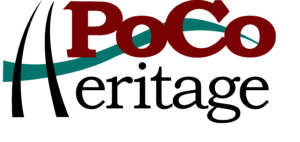LAND ACKNOWLEDGEMENT
PoCo Heritage acknowledges that our museum is located on the traditional, ancestral and unceded territory of the kʷikʷəƛ̓əm (Kwikwetlem First Nation). We thank the kʷikʷəƛ̓əm who continue to live on these lands and care for them, along with the waters and all that is above and below.
Why is it important to do a land acknowledgement and what does it mean to be ‘unceded’?
Land acknowledgements recognize the deep and enduring connection between the territory where we live and the people who have called it home since time immemorial. The kʷikʷəƛ̓əm have lived on their ancestral, unceded, traditional lands since time out of mind and this includes the area that is now the City of Port Coquitlam.
Most land in British Columbia was taken from First Nation peoples without an agreement or treaty and this is true of the land in and around what is now Port Coquitlam. This is what we mean when we say “unceded”. We want to recognize that these lands were taken without the consent of the kʷikʷəƛ̓əm people and that they have never relinquished their title to their land. If you would like to learn more about land acknowledgements and kʷikʷəƛ̓əm territory, we encourage you to read their own words here.
PoCo Heritage’s Commitment
In the spirit of Truth and Reconciliation, PoCo Heritage acknowledges that
- Harm has been inflicted on Indigenous communities in many ways including by heritage organizations.
- The Indigenous peoples of Canada are the knowledge-keepers of their own history, heritage, and culture.
- Indigenous peoples have a right to protect, preserve, and share their heritage according to their own principles. (UNDRIP, article 23)
In light of these guiding principles, PoCo Heritage commits to work to
- Establish and maintain mutually respectful, responsible and welcoming relationships with Indigenous peoples.
- Gain more knowledge and cultural awareness about, with, and from Indigenous peoples
- Involve Indigenous communities whose culture and stories may be included in programs or displays
- From the planning stages to the final product
- In a meaningful, humble, respectful, and culturally sensitive way
- With Indigenous partners taking decision-making roles and not only acting as consultants
- Ensure objects related to the material culture of any First Nation community are not collected or displayed without the consent and meaningful involvement of the community being represented.
- Put right any pre-existing displays, programs, collections, policies, and procedures that do not follow the above principles.
- Preserve to the best of our ability and hold in trust any pre-existing collections of First Nations cultural material until such time that these can be repatriated.
- Repatriate First Nations cultural objects according to the guidelines of the Repatriation Policy and Procedure and respond to requests in a sensitive and timely manner.

